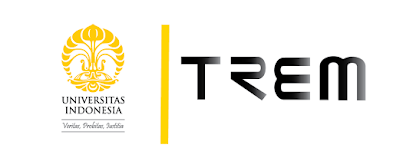sustainable development goal 11
Sustainable cities are essential for dignified living and community development. Universities can aid by driving forward-thinking urban policies and enhancing the abilities of city stakeholders to address specific urban challenges.

Supporting arts and heritage under SDG 11, “Sustainable Cities and Communities,” emphasizes preserving cultural legacies while advancing urban sustainability. This includes safeguarding historical sites, promoting local art, and ensuring urban spaces reflect diverse cultural histories. Such initiatives not only enrich community identity but also boost tourism and economic growth. Integrating arts and heritage into urban development fosters a sense of belonging, enhances social cohesion, and contributes to the creation of vibrant, sustainable cities.
Universitas Indonesia (UI) is an educational institution with abundant history, tradition, and culture. Located in Depok, West Java, makes UI one of the centers of science and culture in Indonesia. However, UI is not only a place for the society of academicians to learn and develop. Through its various facilities, UI also invites the general community to participate, experience, and appreciate the rich culture and knowledge it has.
Makara Art Center (MAC) is a real example of how UI seeks to integrate arts and culture with education. Established with the aim of advancing arts and culture in Indonesia, MAC UI invites the general community to enjoy, participate, and appreciate various arts performances and exhibitions. Furthermore, the collaboration between MAC and various parties, including external parties, renders arts at UI more inclusive with a wider impact.
In addition to arts, UI also maintains and preserves cultural heritage through Faculty of Humanities (FIB) of UI. FIB UI does not only focus on education, but also strives to bridge the gap between the community and the cultural wealth. By providing public access to historic buildings and valuable natural landscapes, FIB UI ensures that these cultural treasures belong not only to UI, but also to the wider community. It is the real effort of UI to maintain the sustainability of cultural heritage.

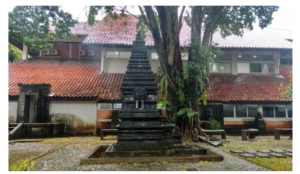
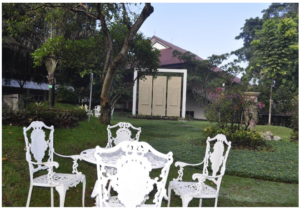
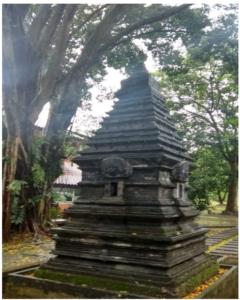
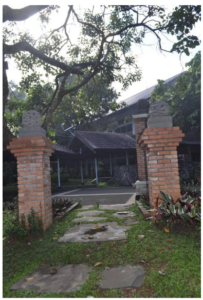

In addition to science and arts, UI also cares about the fitness and health of its entire society of academicians. It is reflected in the efforts of UI to provide public access to its various facilities. UI Stadium, equipped with complete facilities, is not only used by the society of academicians of UI, but also by the community of Depok and its surroundings. Felfest or UI Felicity Festival, with its various facilities, is a very suitable place for various community activities, such as recreation, sports, and meetings. Meanwhile, the Sports Facility (SOR) of UI, with its two Indoor Buildings, provides various sports fields to be enjoyed by the general community. All is part of the commitment of UI to providing full public access to its facilities.
All facilities owned by UI proves UI as not only a place to study, but also a place for the community to gather, interact, and experience various valuable experiences. Through public access provided by UI to various buildings and facilities, the community has the opportunity to be part of the long and valuable journey of UI in the fields of science, arts, sports, and culture. UI, with all its initiatives, positions itself not only as a university, but also as a center of culture and science for the wider community.
As a beacon of education in Indonesia, Universitas Indonesia (UI) plays an important role in producing the intelligent and educated next generation of the nation. UI firmly shows its commitment to broadening the horizons of knowledge and encouraging literacy at all levels of society. UI realizes this mission by providing public access to its library, including its collection of books and publications.
As one of the valuable assets of the campus, the UI Library is a silent witness to thousands of students who seek, study, and absorb knowledge from its collections. With a collection of nearly 1.5 million items, the UI Library serves as not only a learning resource for its students, but also a reference for numerous other universities in Indonesia. It indicates that UI is at the forefront of library development and innovation in the country. Access to libraries and information is a basic right of every individual. Through this access, the community is provided with the opportunity to continue learning, developing, and contributing to the progress of the nation. UI, with all its initiatives, has proven its commitment to being a bridge between science and the community, ensuring that everyone, without exception, has the same opportunity to access knowledge.


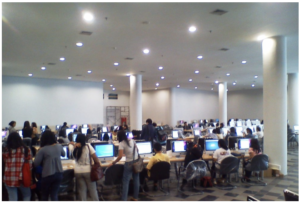
However, the commitment of UI to providing access to information does not only stop at the internal campus level. Each faculty at UI also has its own library with various complete collections for each study program. Faculty libraries are not only available offline; they also have an online platform to facilitate the general community to access their collection. All books, papers, and information contained in the library are used as a source of research, learning, and developing student knowledge. Such initiatives demonstrate how UI is resolute in sharing science and knowledge with the community of Indonesia.
In conclusion, public access to the libraries at UI is a manifestation of the vision and mission of UI in realizing inclusive and democratic education. It is not merely about providing the community with the opportunity to read books, but also with the tools to comprehend the world, think critically, and eventually, contribute to the progress of the nation of Indonesia.
Universitas Indonesia (UI), as one of the oldest and prominent educational institutions in Indonesia, has committed to not only providing knowledge, but also playing an active role in maintaining and preserving the cultural and historical heritage of the nation. It is reflected in the initiatives of various faculties at UI to provide public access to artworks, artifacts, and historical relics.
Faculty of Humanities (FIB) of UI has played a key role in bridging cultural heritage and the community by providing free access to buildings, artworks, and artifacts with cultural heritage value. In addition, FIB UI also provides permanent access to open green spaces on campus, providing opportunities for the community to enjoy the beauty of nature while absorbing cultural works.

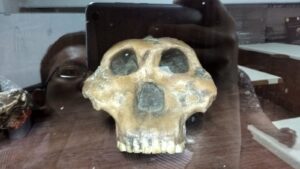

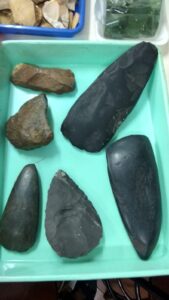


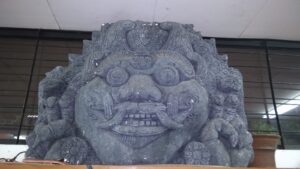
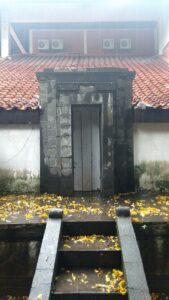
UI also established iMuseum, namely Indonesia Museum of Health and Medicine (iMuseum), at UI Salemba Campus, Jakarta. This museum has an impressive collection of more than 5,000 artifacts, most of which are relics from the Dutch colonial era when Faculty of Medicine (FK) of UI was still named STOVIA. With cutting-edge technology, such as 3D human body visualization, iMuseum is one of the most sophisticated medical museums in Southeast Asia. Visitors interested in exploring the history of medicine in Indonesia should visit iMuseum as the main destination.
One of the advantages of museums at UI is their accessibility. Using various modes of transportation, either via Trans Jakarta bus which stops directly in front of campus or the Commuter Line station in Cikini, the community can easily visit the museums at UI. Furthermore, UI also collaborates with Gowes Corporation to provide free eco-friendly vehicles such as electric bicycles and scooters for iMuseum visitors.
Faculty of Law (FH) of UI has taken a historic measure by establishing the first museum of the faculty of law. The FHUI Museum marks the success of the faculty in preserving and introducing the legal history of Indonesia to the wider community.
Faculty of Law (FH) of UI Establishes the First Museum of the Faculty of Law in Indonesia
Meanwhile, Faculty of Engineering (FT) of UI innovatively introduces a virtual museum that displays the works of its students. Through the Innovation Work Exhibition of Faculty of Engineering (FT) of UI, FT UI students are provided with a platform to show their potential and innovations which may be applied in the wider community.
The Innovation Work Exhibition of Faculty of Engineering (FT) of UI
These examples illustrate how UI integrates education, research, and service to the community in a unique and innovative way. UI widely opens its doors for the community to enjoy, learn, and appreciate the abundant culture, science, and innovation generated by the society of academicians of UI through museums and exhibitions.
By providing public access to museums, exhibition spaces, and galleries, UI has strengthened its position as a center for education and culture in Indonesia. These museums are not merely a source of knowledge and information, but also a forum for the community to explore and appreciate national heritage and culture.
Universitas Indonesia (UI) is always committed to creating a campus environment that is conducive, refreshing, and eco-friendly. UI considers open green spaces not only aesthetic, but also representing the commitment of UI towards sustainable learning and research as well as environmental conservation. Open green spaces at UI are an integral part of campus life. They are not only a means of recreation, but also a learning and discussion space that stimulates the creativity of students, lecturers, and staff. Therefore, UI strongly supports the idea of “Public access to green spaces”. It not only reflects the efforts of UI to provide green spaces, but also its philosophy of always being open to the community.
The Green Face of UI City Forest
In addition, UI always maintains the sustainability maintenance and infrastructure development of buildings on campus. Faculty of Computer Science (Fasilkom) of UI pays great attention to environmental sustainability aspects in the construction process of its new building. Therefore, the construction and renovation of buildings at UI always pay attention to the eco-friendly aspects.
Building Arrangement and Infrastructure of Faculty of Computer Science (Fasilkom) of UI
The construction of buildings that prioritize environmental sustainability aspects will guarantee eco-friendly infrastructure development as well. One of the most notable aspects of the UI campus is its open green spaces. The UI campus offers various gardens and gazebos which become favorite places for students to study, discuss, or just relax. In addition, shade trees and other green areas create a refreshing and pleasing atmosphere amidst the bustle of the city.
Public access to open green spaces on the UI campus is available in various forms. All green areas are accessible by the general community for free at all times since UI upholds the main principle of providing opportunities for the community to enjoy the beauty and tranquility of the campus. Open green spaces at UI confirm its position as a university that cares about the environment and community. By providing public access to these green spaces, UI aspires to share the beauty and serenity of nature with the community. In addition, with these open green spaces, UI hopes to be an example for other institutions in terms of environmental conservation.
In conclusion, through its various efforts and initiatives, UI shows that it is not only focused on education and research, but also on environmental conservation and community welfare. The existence of open green spaces on the UI campus is concrete evidence of the commitment of UI to creating a greener and more sustainable world.
Arts And Heritage Contribution
Universitas Indonesia (UI) is a beacon of education and culture in this country. Not only does UI excel in the academic field, it is also a driving force for arts and culture in Indonesia. The variety of art activities regularly held is concrete evidence of the dedication of UI to preserving the arts and culture of the country.
UI truly understands that arts and culture are national identity. Therefore, amidst the roar of modernization, this university is committed to providing a platform for the young generation to express themselves as well as explore and advance the arts of Indonesia. Makara Art Center (MAC), with its sophisticated and modern facilities, is real evidence of the commitment of UI. This building, located strategically next to Kenanga Lake, is not only a center for student art activities, but also a magnet for the general community hungry for artistic expression.
On the other hand, Faculty of Humanities (FIB) of UI has an important contribution to the arts sector. Through a series of annual performances involving choir groups, theater groups, orchestra groups, and various other artistic ensembles, FIB UI has created a space for artistic expression and talent development. In addition, FIB UI also invites the entire community to maintain and preserve national and local culture. Therefore, the community can participate in enjoying high quality performances as well as help preserve their local culture.
As a prominent educational institution, UI has the responsibility to produce a generation with not only academic competence, but also cultural sensitivity and a love of arts. Through its various programs and initiatives, UI proves its commitment to maintaining and advancing the cultural and artistic heritage of Indonesia to remain sustainable and developing amidst globalization. As students, alumni, and the general community, we should be proud and appreciate UI for its contribution and dedication in preserving national culture and arts.
Record And Preserve Cultural Heritage
Preserving cultural heritage is inseparable from the role of higher education institutions such as Universitas Indonesia (UI). As one of the prominent universities in the country, UI does not only play an active role in developing science and technology, but also has the dedication to ensuring the sustainability of the cultural heritage of Indonesia, including intangible ones such as oral traditions, dance, music and others.
This dedication in ensuring cultural sustainability is evident in the preservation of the culture of Indonesia carried out by the UI Library. The UI Library stores not only academic books or papers, but also relics of the ancient cultural heritage of Indonesia. Therefore, to maintain and preserve this cultural heritage, the UI Library digitalizes ancient heritage manuscripts.
In addition to ancient manuscripts, UI also preserves the current oral traditions. UI reveals the importance of revitalization efforts, which then become the attention of the team from the Community Care Program of UI. One of them was Team 47 which went directly to Kalianda, South Lampung, to revitalize Kias speech tradition in Palembapang Village. The team led by an author was accompanied by a UI lecturer, Dr Syahrial. This activity took place on October 1–3, 2022. Kias, as one of typical oral traditions of Lampung, is an example of the importance of conservation efforts. As a reflection of the values and stories of the local community, Kias has great potential to be lost to time supposing it is not preserved and documented properly. UI, with its resources and network, can play an important role in bridging traditions such as Kias with the younger generation, to ensure that they remain connected to their cultural roots.
Kias Oral Tradition: the Culture of Lampung Coastal Area
At the faculty level, UI also continues to encourage the preservation of local culture. In general, faculties carry out cultural preservation activities by presenting performances or conducting research in the relevant areas. In this regard, Faculty of Psychology (FPsi) encourages the preservation of local culture by presenting several traditional dances of Indonesia and establishing a community that loves local culture. The community is called the Kencana Pradipa Specialization Group.
In addition to domestic preservation, UI is also dedicated to bringing and preserving the culture of Indonesia on the international stage. One form of the dedication is evident from UI student activities on the international stage. Puti Hilma Noviandri, a talented UI student, represents the younger generation who still has an interest and love for the national culture. By inviting Krida Budaya Student Dance League of UI to the Folklore Festival in Europe, UI shows its commitment to not only advancing but also introducing the cultural wealth of Indonesia to the world.
In conclusion, with all its resources and potential, UI has an important role in the efforts to preserve national cultural heritage. With various supporting programs and activities, UI is committed to bridging tradition and innovation, ensuring that the cultural wealth of Indonesia continues to be preserved and known by the younger generation and the international community. Amidst the increasingly complex challenges, UI remains steadfast as a bastion of cultural preservation, ensuring that ancestral heritage lives and develops in the hearts of the community of Indonesia.
Universitas Indonesia (UI), as one of the prominent educational institutions in this country, is always committed to innovation and renewal. One of the current priorities of UI is realizing the concept of “Green and Sustainable Campus”. In its efforts, UI prioritizes the principles of sustainable development, one of which is by regulating transportation and mobility within the campus environment.
UI as a university that adheres to the concept of a green and sustainable campus has various facilities and infrastructure that ensure students, lecturers, and staff can implement environmental sustainability. In this regard, UI has numerous intertwined pedestrian paths throughout its area. Each faculty also provides pedestrian paths for its students throughout its area.
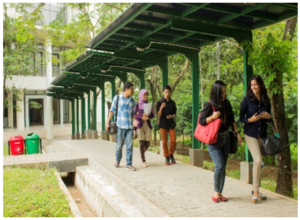

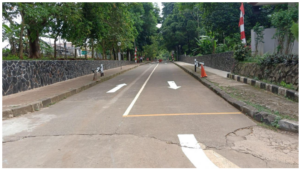
Observing the increasing environmental challenges such as air pollution and global warming, UI is aware that every action has an impact. Therefore, through UI Rector’s Regulation No. 20 of 2021, UI seeks to reduce carbon emissions by regulating parking and inviting its society to switch to more sustainable transportation.
UI Depok campus as the center of UI academic activities is now provided with campus transportation, namely campus yellow buses (Bikun). Bikun, with its yellow color, symbolizes the commitment of UI to creating a green and healthy environment. Covering extensive routes, Bikun is the main choice for students, lecturers, and staff to get around campus. Meanwhile, UI Station facilitates the mobility of campus residents to and from campus, reducing the need for private vehicles.
Moreover, UI also opens up opportunities for collaboration with various parties to support its green initiatives. One of them is with PT Beam Mobility Indonesia to provide electric bicycles on campus. The electric bicycles, known as the Beam Rover, offer an efficient, fast, and eco-friendly mobility solution. UI Vice Rector, Prof. Dr. Ir. Dedi Priadi, DEA, expressed his hope at the launching that electric bicycles can become an alternative transportation for the campus society. In addition, the electric bicycles are expected to help students and other society of academicians of UI to move from one faculty to another more quickly, supporting time efficiency in academic activities.
Maintaining Air Quality in Campus Areas, UI Operates Electric Bicycles
In addition to yellow buses and electric bicycles, UI also provides yellow bicycles to be used by students, lecturers, and staff. Yellow bicycles are used as an emission-free means of transportation. Several faculties also have their own eco-friendly vehicles. Faculty of Computer Science (Fasilkom), for instance, provides 18 bicycles as emission-free vehicles for free. However, their use remains limited to staff and lecturer activities.
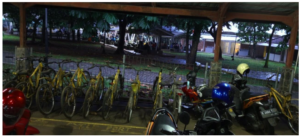
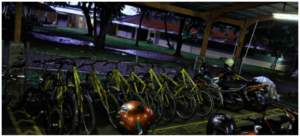
Bicycles of Faculty of Computer Science (Fasilkom) of UI
In the long term, UI hopes that these initiatives will not only have a positive impact on the campus environment, but will also be an inspiration for other institutions, both in Indonesia and around the world. The commitment of UI to sustainable development shows that development is not only about physical growth, but also about how to protect and preserve the environment for future generations.
In conclusion, UI with all its efforts is committed to being a pioneer in creating a sustainable campus environment. With the support from the campus society as well as collaboration with various parties, UI is optimistic to achieve its vision as a green campus and become an example for other universities throughout the world.
In the course of time, with the increase in environmental challenges, the need for sustainable transportation becomes urgent. Universitas Indonesia (UI) is committed to actively contributing to create a greener environment, particularly in the aspect of campus transportation. Considering the density of the society of academicians and activities on UI Depok campus, the need for effective and efficient transportation is certainly a priority. However, UI realizes that efficiency is not the only parameter. Sustainability, convenience, and minimal environmental impact are also important considerations in developing transportation facilities.
The initiative from Faculty of Computer Science (Fasilkom) of UI in providing shuttle and bicycle facilities is an example of how a faculty can adapt to transportation needs while paying attention to environmental aspects. Even though shuttle services have been temporarily suspended during the pandemic, the commitment of UI to promoting sustainable transportation remains consistent. Providing bicycles, in particular, encourages the society of academicians of UI to choose a more eco-friendly mode of transportation. It is also in line with the global movement to reduce carbon emissions and air pollution.
Transportation Management at Faculty of Computer Science (FALSIKOM) of UI
Faculty of Psychology (FPsi) of UI, with its series of policies, is also another evidence of the dedication of UI in promoting sustainable transportation. Restrictions on car parking areas and promotion of alternative modes of transportation such as UI shuttles and electric bicycles invite the entire campus society to think twice before deciding to use private vehicles. It is an effort to reduce environmental burden and improve air quality in the campus area.
Transportation Management at Faculty of Psychology (FPsi) of UI
Additional facilities such as convenient bus stops and pedestrian paths, including facilities for the visually impaired, indicate the enthusiasm of UI to comfort and sustainability. By providing these facilities, it is hoped that the campus society will prefer to walk or use public transportation rather than relying on private vehicles.
Supporting G20 Presidency of Indonesia, UI Electric Bus Becomes an Operating Local Electric Vehicle
These efforts do not only reflect the commitment of UI to supporting sustainability, but also demonstrate the vision of UI in creating a conducive, healthy, and sustainable learning environment. UI aspires to instill awareness that every individual has a role in protecting the earth, for example by choosing eco-friendly transportation.
Universitas Indonesia (UI), as a symbol of educational excellence in Indonesia, continues to adapt to the current development. Amidst global uncertainties due to the COVID-19 pandemic, UI has swiftly taken strategic measures to ensure the continuity of academic activities and the welfare of all its society.
One of the strategic measures is the implementation of a remote working policy or better known as the Work from Home (WFH) policy. This policy aims to reduce employee mobility to minimize the risk of virus transmission, but without sacrificing work productivity. Against the pandemic conditions that limit physical meetings, UI utilizes technology to support the WFH policy. In response to the ongoing COVID-19 pandemic situation, UI has taken firm measures to protect the safety and health of all employees and members of its society of academicians.
Universitas Indonesia strongly supports lecturers and staff to work from home or other places outside the office by utilizing the university information system. The online learning process utilizes platforms such as E-learning Management System (EMAS) or other applications subscribed by UI (i.e. Microsoft Teams). In addition, UI also develops an information system called Human Resources Information System (HRIS), one of the features of which is recording attendance through the “Greatday-HR” system. Furthermore, work administration is carried out through the UI information system called “kelola”. For correspondence, UI develops “Andini”, which is a correspondence system that allows digital signatures. By using “Andini”, work units can communicate and sign documents digitally to simplify operations.
Concerning the learning system, UI has established a Distance Learning (PJJ) or online lecture policy. Therefore, UI creates and develops a system for online students and lecturers, i.e. EMAS. EMAS is a distance learning system for UI students and lecturers accessible via the website https://emas.ui.ac.id. EMAS has a total of nearly 4,130 classes and a total of 5,381 courses with the number of users amounts to 1,420 lecturers and 42,748 students.
However, the implementation of PJJ and WFH are not without challenges. For several employees, adapting to this new work method requires time. Separating work space from personal space, managing concentration amidst domestic distractions, and maintaining balance between work and personal life are several issues that frequently arise. Nevertheless, the strong commitment from all society of academicians of UI and technological support allows smooth implementation of WFH. Various additional services and units have been established to remotely serve UI students and employees. One of them is a faculty service unit to help students during the Covid-19 pandemic.
The Service Unit of Faculty of Public Health (FKM) of UI
The implemented WFH policy reflects the insight of UI in responding to global dynamics. In addition, allowing WFH in certain situations shows the empathy and understanding of UI of the needs and welfare of its employees. Similar to Vocational Education Program (Vokasi) of UI which provides employees with the flexibility to work from home, it shows how UI understands that the quality of work is not solely determined by physical presence in the office, but also by the results of the work provided.
In the long term, WFH provides an opportunity for UI to reflect on how an educational institution can operate efficiently in the digital era. Even though the pandemic will pass, WFH practices can be an option that will continue to be implemented to increase work efficiency and flexibility. As a university that always moves dynamically, UI shows that it is ready to face all forms of challenges with innovation and dedication.
Affordable Housing For Employees
Universitas Indonesia (UI) has long been known as an educational institution that does not only emphasize academic excellence, but also has commitment to the welfare of all members of its society, specifically lecturers and staff. The welfare factor is an important aspect that can influence the productivity and dedication of lecturers and staff in educating the young generation of the nation.
One form of the concern of UI over the welfare of employees and lecturers is by providing support in terms of home ownership. Home, as a primary human need, is not only a place to live, but also as a source of composure and stability for every individual. By having a decent and comfortable home, lecturers and staff can focus more on carrying out their duties and responsibilities on campus.
Therefore, UI has taken concrete measures to facilitate the home-ownership process for its lecturers and staff. Through the recommendation letters provided, UI facilitates lecturers and staff who want to apply for Home Ownership Credit (KPR). The collaboration that has been established with several banks, apartment developers, and cooperatives shows the strong commitment of UI to providing the best choices for its lecturers and staff. Competitive prices, simpler processes, and various other conveniences are clear evidence of this commitment.
UI believes that these efforts are a long-term investment for education in Indonesia. A prosperous and happy educator will be capable of creating a more effective and inspiring learning process for students. It is one of the strategic measures taken by UI in creating a conducive academic atmosphere to enable lecturers and staff work with heart and dedication.
Affordable Housing For Students
Student dormitories are a real representation of the holistic spirit of education. In a well-known university such as Universitas Indonesia (UI), dormitories serve as not only a place to live, but also a place where the process of life education, character formation, and strengthening of national values takes place.
UI acknowledges the increasing living expenses, particularly in areas around big cities such as Jakarta and Depok. The initiative of UI to provide affordable dormitories for its students shows the high commitment to the success and welfare of its students. It is a concrete action that does not only address the basic need for housing, but also supports students in living an academic life without excessive financial burden. Therefore, dormitory fees are quite affordable. Moreover, scholarship assistance is also available.
Furthermore, UI realizes that even though dormitory fees have been subsidized to remain affordable, there remain students who need additional assistance. In response to this, UI also provides various scholarship programs aimed at helping students meet their needs while on campus. These scholarships may include pocket money, dormitory fee waivers, or even tuition fee waivers for those who meet certain criteria. These scholarships do not only ensure that students have access to education without financial barriers, but also encourage a healthy competition among students for academic achievement.
It is undeniable that UI Dormitories are equipped with facilities that support the student learning process. Common study rooms, fast internet access, and 24-hour security are several benefits that support productivity. Furthermore, common areas such as the living room and kitchen provide opportunities for students to interact and share with each other as well as develop a sense of togetherness.
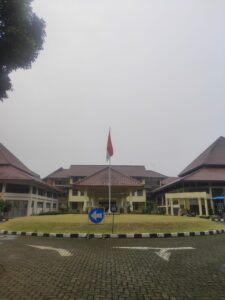





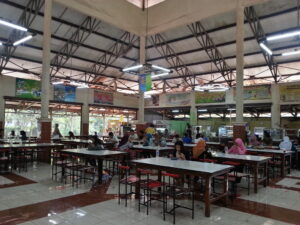

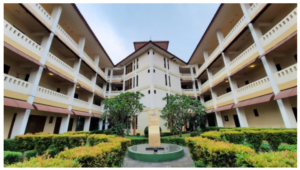
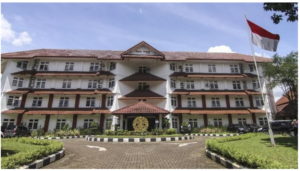
However, beyond the physical buildings and facilities, the true essence of UI Dormitories lies in its residents. With diverse backgrounds, students have a golden opportunity to interact with friends from various ethnicities, religions, and cultures. This process of adaptation, negotiation, and interaction teaches students to understand and appreciate differences.
On the other hand, students also learn and develop independence, responsibility for themselves and their environment, and necessary social skills. They learn to manage their time, shop wisely, and even cook their own meal. All of these skills, albeit simple, are crucial to shape the characters and readiness of the students to face challenges in the world of work.
For students living far from their families, the dormitory becomes a second home. Roommates or neighbors next door become the new family. They face various challenges together, both in academic and daily life. Through joy and sorrow, laughter and tears, they learn to support and strengthen each other.
By providing affordable and comfortable dormitories, UI does not only provide a solution to the challenges of student housing needs, but also invests in the formation of a young generation of character, intelligence, and integrity. It is an investment in a brighter future for the nation, in which diversity is not a divider, but instead a strength to unite for mutual progress. This is where the real role of universities in shaping national character is realized.
Universitas Indonesia (UI), as one of the pioneers of higher education in Indonesia, always strives to provide the best for its entire society, not only from the academic aspect, but also in the convenience and accessibility of the campus environment. Prioritizing pedestrian access on campus is a form of the dedication of UI to creating a conducive learning environment while encouraging sustainability and environmental awareness.
UI understands that learning experiences do not only occur in lecture rooms, but also in every corner of the campus. The moments when students walk from one faculty to another, discussing with friends on the street, or simply enjoying the natural beauty of the campus, are an integral part of the campus experience. Therefore, UI seeks to ensure that every step taken by pedestrians on campus is a pleasant, safe, and enriching experience.
Numerous faculties have implemented this concept well. Limiting parking areas and improving pedestrian facilities demonstrate a commitment to reducing dependence on private vehicles and increasing walking mobility. This effort helps reduce pollution and traffic congestion on campus as well as encourages a healthier lifestyle for the entire society of academicians of UI.
Pedestrian Support Facilities at Faculty of Computer Science (Fasilkom) of UI
Pedestrian Support Facilities at Faculty of Psychology (FPsi) of UI



The facilities provided for pedestrians at various faculties are also equipped with various features that support comfort and safety, starting from special features for the visually impaired to adequate lighting at night. It indicates the thorough attention of UI to every detail, whose main goal is creating an inclusive campus environment that supports diversity.
Support Policy for Pedestrians and People with Disabilities at Faculty of Engineering (FT) of UI
The measures taken by UI in prioritizing pedestrians on campus does not only show the vision of UI in creating a better learning environment, but also its commitment to contributing to global environmental sustainability. It is concrete evidence that UI focuses not only on academic achievement, but also on quality of life and environmental sustainability. Thus, UI continues to assert itself as a prominent and responsible educational institution.
Local Authority Collaboration Regarding Planning And Development
As one of the prominent universities in Indonesia, Universitas Indonesia (UI) is always committed to collaborating with related parties, including local authorities, in planning and developing its campus area. Located strategically in Depok, West Java, UI has an important role in the development of the surrounding area, including housing for local residents. Realizing that the infrastructure and building development in the campus area may affect the surrounding environment, UI always collaborates with the local government in development planning. This collaboration is important to ensure that the development can provide benefits.
The real example in terms of housing is the collaboration between UI and the State-Owned Enterprise (BUMN) of National Housing and Urban Development Corporation (Perum Perumnas) in providing student housing at Samesta Mahata Margonda. This collaboration provides a solution to UI student housing needs as well as ensure that local residents can still access housing at affordable prices. Thus, UI contributes to the development of not only educational infrastructure, but also the housing sector.
In addition, collaboration with Universitas Gadjah Mada (UGM) in managing high-rise buildings shows that UI always strives to adopt the highest standards in managing its assets and infrastructure. Discussions about funding, energy consumption, and asset management are part of the efforts taken by UI to ensure that every development is based on the principles of sustainability and efficiency.
UI and UGM Review the Management of High-Rise Buildings
The adoption of eco-friendly principles, such as green building certification and rainwater harvesting system, also shows that UI does not only focus on physical development, but also considers the environmental impact of each project taken. It is in line with the vision of UI to become an environmentally-conscious and sustainability-committed university.
UI also understands that any development in the UI campus area should be in line with the needs and aspirations of the surrounding community. Therefore, UI always communicates with the local government and other stakeholders in planning and executing every development project. Through this collaboration, UI aspires to create a campus environment that is conducive to the teaching and learning process, while still paying attention to the interests of the surrounding community.
As a university with various faculties with high academic standards, UI understands the important role of collaboration in improving the quality of education and research. Collaboration with local authorities, other universities, and various other relevant parties is part of the efforts of UI to continue to innovate and provide positive contributions to the community. Through collaboration with local authorities and other stakeholders, UI is committed to being an agent of change that contributes to national development and community welfare.
Planning Development – New Build Standards
Sustainable infrastructure development, particularly in the education sector, is currently an important topic of discussion among policy makers and education practitioners in Indonesia. Considering climate changes and increasing environmental challenges, there is an urgency to construct eco-friendly and sustainable buildings. Universitas Indonesia (UI), with its recognized national and international reputation, regards this not merely as a trend, but as a need and commitment.
The measures taken show the long-term vision of UI in supporting sustainable development. Adopting green building principles in every new building construction project is not merely about aesthetic aspects or trends, but also about how to ensure that natural resources are used wisely, energy efficiency is increased, and the impact on the environment is reduced.
One example is the construction of buildings in the Vocational Education Program (Vokasi) of UI and Faculty of Administrative Science (FIA) of UI which reflect the elements of green buildings. One of them is maximizing the use of sunlight as natural lighting. It is evident from the large glass windows that allow the entry of sunlight. In addition, the air ventilation system is optimized for more natural air circulation. Each floor is equipped with ventilation holes to facilitate air exchange and implement the natural ventilation concept. Green areas are also enhanced by planting flowers and other plants. Each floor of FIA UI building has a stacking garden which functions as a small green space to filter natural light. In an effort to reduce electricity use, renewable energy is utilized and energy efficient equipment is prioritized. All of these initiatives demonstrate the commitment of the Vocational Education Program (Vokasi) of UI to supporting sustainability and energy efficiency in every aspect of its building construction.
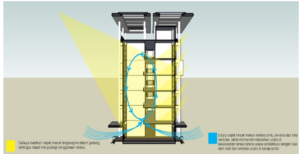
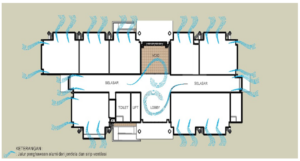
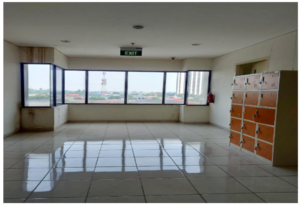
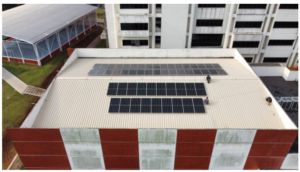
Master Plan for Building Construction at Faculty of Administrative Science (FIA) of UI
The green building concept involves various aspects, such as the selection of sustainable building materials, the use of energy-efficient technology, designs that maximize the use of natural light, and efficient water and waste management systems. In its implementation, UI collaborates with various parties to ensure that these principles are implemented correctly. Therefore, the buildings constructed not only function as places for learning and teaching, but also as living laboratories in which UI students, lecturers, and staff can learn and experience firsthand how sustainability principles are applied.
Collaboration with Universitas Gadjah Mada (UGM) indicates the importance of collaboration between educational institutions in advancing sustainable education in Indonesia. By sharing knowledge and best practices, universities in Indonesia can accelerate the process of adaptation and adoption of new technologies and methods in sustainable development. It encourages the spirit of mutual cooperation and togetherness that is unique to Indonesia in responding to global challenges.
UI and UGM Review the Management of High-Rise Buildings
The commitment of UI to sustainable development also emphasizes the role of universities as agents of change in the community. As places where new thoughts are born and innovation emerges, universities have a responsibility to lead and guide. UI aspires to motivate other institutions, both in the education and other sectors, to adopt sustainable principles in their operations.
Evidently, the challenges faced are not insignificant. However, with a clear vision, strong commitment, and support from all campus elements, UI is on the right track to realize its mission. Through a holistic approach that involves all parties, starting from the management, lecturers, students, to collaboration partners, UI shows that sustainable development is not merely about physical buildings, but also about how to build a mindset and culture that supports sustainability.
In conclusion, the measures taken by UI are a manifestation of its commitment and vision in supporting the 2030 Agenda for Sustainable Development. Thus, UI does not only contribute to the world of education, but also to the efforts of environmental conservation and sustainable development.
Universitas Indonesia (UI) understands the importance of planning and thinking ahead in developing its campus infrastructure. Specifically, in talking about building on brownfield sites, areas of former development that may have been abandoned or no longer suitable for their previous use, but are now being revitalized for a new purpose.
Through the UI New Campus Master Plan in Depok, UI shows a 10-year long-term vision for physical development and academic facilities. Focusing on brownfield sites allows UI to maximize the use of available land without needing to damage or disturb untouched green land, maintaining environmental sustainability and reducing the impact of development on the surrounding ecosystem.
UI Rector’s Decree No. 2446 of 2016 on UI New Campus Master Plan in Depok for the 2016-2026 Period
Development on the available land represents the commitment of UI to sustainability and adaptation. By utilizing the available land, UI avoids additional costs that may be required to remediate or prepare a new greenfield site. In addition, by focusing on revitalization, UI also contributes to the regeneration of the surrounding area, improving its aesthetics and adding value to the local community.
The UI Master Plan is not only limited to the physical structure of the campus, but also aligned with the academic vision of UI. It is evident from how this plan is connected to the Academic Master Plan (RIA), indicating that every infrastructure decision is supported by academic needs and institutional purposes. It ensures that every development, including classrooms, laboratories, or research facilities, supports the academic mission of UI and provides optimal benefit to the society of the academicians.
The Board of University Planning, Development, and Control (BP3U) is appointed as the main coordinator in implementing this Master Plan. BP3U is responsible for ensuring that every aspect of the plan is implemented appropriately, in accordance with established priorities, with a positive impact on the entire society of academicians of UI.
Funding for this development comes from a variety of sources, reflecting the desire of UI to ensure the financial sustainability of these projects. Supported by various agencies, both local and central government, as well as other non-binding resources, UI can continue its plans with confidence that every stage will receive full support.
The UI Master Plan is needed not only for infrastructure sustainability, but also to anticipate the changing needs and future challenges. Without such guidelines, campus development can proceed without coordination, leading to incompatible or even conflicting infrastructure. However, with a clear and coordinated plan, UI ensures that each new development meets the current needs while also preparing for future needs.
In conclusion, the UI New Campus Master Plan in Depok shows a clear and integrated vision for the future of the institution. By focusing on the development of brownfield sites and close coordination between infrastructure and academic needs, UI determines a new standard for sustainable and accountable university development.
Sustainable practices under SDG 11, “Sustainable Cities and Communities,” focus on creating environmentally friendly and resilient urban areas. This involves developing green spaces, promoting renewable energy, and ensuring efficient public transportation. Urban planning prioritizes eco-friendly building materials and designs to reduce carbon footprints. Emphasis is placed on waste reduction and recycling initiatives. These practices aim to balance urban development with environmental sustainability, improving the quality of life while protecting natural resources for future generations.

We will coach you and help you achieve your health goals. At garage, we can help you every step of the way. Join our family and own your fitness. What are you waiting for? Take the first step today.

We will coach you and help you achieve your health goals. At garage, we can help you every step of the way. Join our family and own your fitness. What are you waiting for? Take the first step today.

We will coach you and help you achieve your health goals. At garage, we can help you every step of the way. Join our family and own your fitness. What are you waiting for? Take the first step today.
